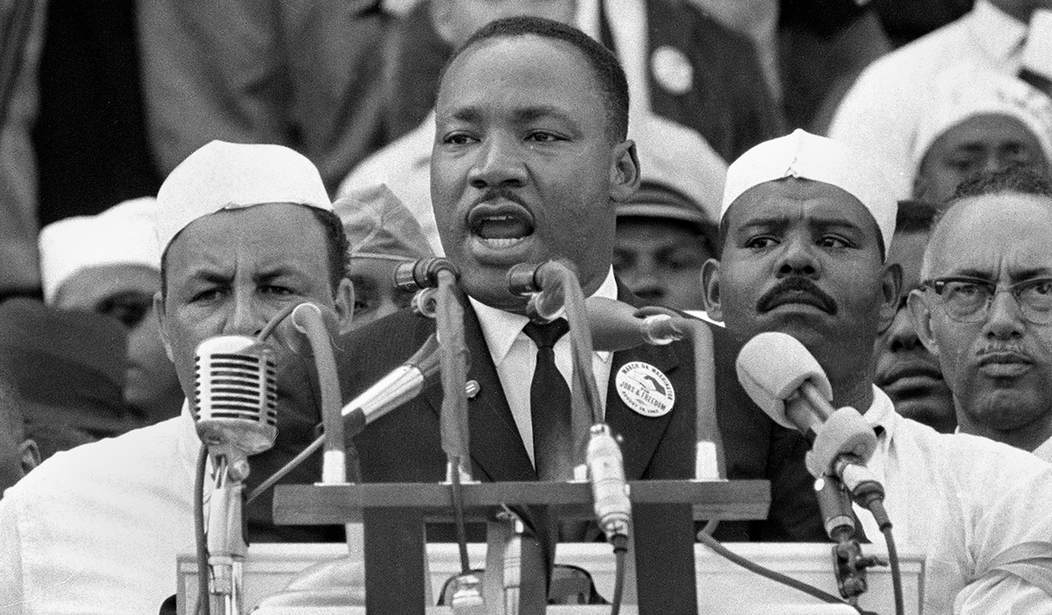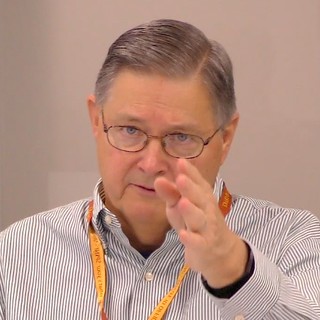Millions of Americans today on this national holiday celebrate the life and legacy of Dr. Martin Luther King, Jr., and especially his justly famous “I Have a Dream” address in August 1963, at the Lincoln Memorial during the March on Washington.
Don’t be surprised to hear, however, during the course of the day’s commentary on mainstream media outlets, strident voices seeking to co-opt King as an early proponent of what we know today as Critical Race Theory (CRT), the Left’s poisonous ideology of systemic white racism as the originating rot at the heart of the American soul.
Such claims have antecedents in the efforts of leftist historians and sociologists who, prior to the current dominance of CRT on campus and in the media, sought to portray King as a moderate reformer who over the last years of his life evolved into a radical left-wing critic of capitalism and American imperialism.
Typical of the latter is University of Colorado at Colorado Distinguished Professor Paul Harvey’s claim that “from my perspective as a historian of religion and civil rights, the true radicalism of [King’s] thought remains under-appreciated. The ‘civil saint’ portrayed nowadays was, by the end of his life, a social and economic radical, who argued forcefully for the necessity of economic justice in the pursuit of racial equality.”
EGADS! NYU Prof Attributes Black Trump Support to ‘Multiracial Whiteness’
It is true that King in his final months prior to his assassination in Memphis in 1968 became a foe of America’s involvement in the Vietnam War, and that he talked increasingly during that period about “economic injustice.”
But King is remembered first and foremost as the principal voice of the Civil Rights Movement of the 1960s, as a preacher who, in his “I Have a Dream” address, called America to live up to the promise of its most fundamental dream, that “all men are created equal.”
Without the vision of the fulfillment of the Declaration of Independence’s great promise at the heart of that 1963 address, nothing else that King did in his years afterward would have mattered nearly so much.
There is one passage in particular that for the vast majority of Americans defines the King legacy:
I have a dream that one day this nation will rise up and live out the true meaning of its creed: “We hold these truths to be self-evident, that all men are created equal.” … I have a dream that my four little children will one day live in a nation where they will not be judged by the color of their skin but by the content of their character.
That is a plea of eloquent simplicity for America to be what it has from its beginning aspired to be, a nation where “Equal Justice Under Law” applies to every citizen, without fear or favor.
What that passage is not is in any way a precursor to a King who would have declared himself an advocate of CRT. And there is another passage in King’s 1963 address that makes this reality crystal clear:
But there is something that I must say to my people, who stand on the warm threshold which leads into the palace of justice: In the process of gaining our rightful place, we must not be guilty of wrongful deeds. Let us not seek to satisfy our thirst for freedom by drinking from the cup of bitterness and hatred.
We must forever conduct our struggle on the high plane of dignity and discipline. We must not allow our creative protest to degenerate into physical violence. Again and again, we must rise to the majestic heights of meeting physical force with soul force.
The marvelous new militancy which has engulfed the Negro community must not lead us to a distrust of all white people, for many of our white brothers, as evidenced by their presence here today, have come to realize that their destiny is tied up with our destiny, and they have come to realize that their freedom is inextricably bound to our freedom. We cannot walk alone.
There is no room in King’s 1963 vision for the idea that because the majority of Americans are and have always been white their systems of government, economy, and culture are designed solely to protect “white privilege,” and that individual whites, therefore, must permanently pay reparations to people “of color” for the sins of the past. Such notions would, I believe, repulse the man who delivered that 1963 address at the memorial to the great American emancipator.
Rather than becoming a disciple of hate for his white brothers, King would, had he lived, come to realize that, as retired Vanderbilt University Political Science Professor Carol Swain put it, “Washington, Hamilton, Franklin and Adams and the rest of the Founders risked everything to make my world, my America possible.”
And for that reason, King’s contemporary voice would be with those who today call for the protection and preservation of America rather than its destruction. He would, in short, have become a man of the Right.
Mark Tapscott is founding editor of HillFaith, an apologetics ministry devoted to sharing the Gospel of Jesus Christ with young men and women working on Capitol Hill.










Join the conversation as a VIP Member